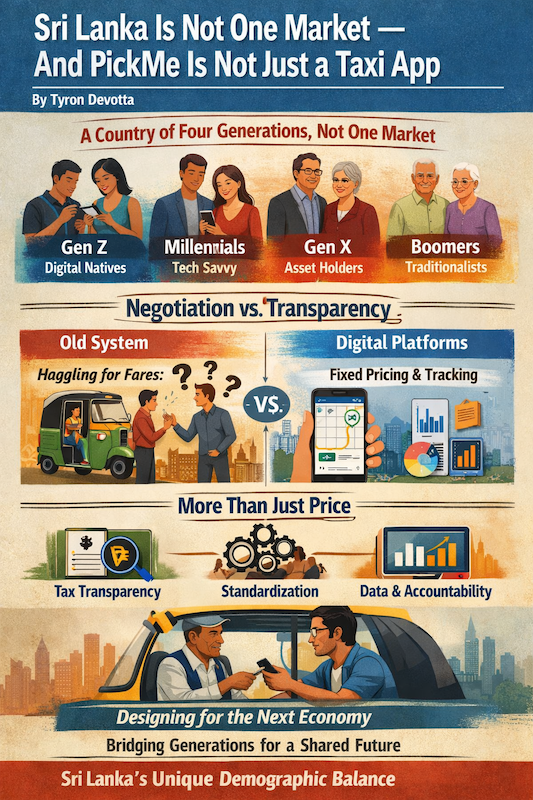By Druvinka Samuel
If you are a frequent Whatsapp user, you may have noticed the pop up alert that appeared or has been appearing each time you opened up the application. The words ‘Terms & Conditions’, specifically when strung together, tends to trigger a knee jerk reaction in most people to just hastily tick the box next to the word accept, just so we can get on with our day. But this time however, there was a tinge of apprehension that came with Whatsapp’s choice of informing its users of a brand new policy via a pop up. And rightfully so, because mere hours after the launch of this privacy policy, there was a furore that was raised by data privacy advocates, government organizations, technology experts and everyone else that falls between and along the spectrum.
Not the best track record
Whatsapp, was founded by Jan Koum and Brian Acton, two former Yahoo! Executives, but in 2014 was acquired by Facebook. Facebook in itself does not have the cleanest track record, especially in regard to data security and privacy policies. In early July, 2020, Facebook admitted to sharing their users data with an estimated 5,000 third party developers even after its access to that data was supposed to expire. (CNet) But are there parallels that can be drawn between Facebook’s controversial past and WhatsApp’s new privacy policy?
The new policy
With the new privacy policy, WhatsApp is essentially reserving the right to share any data it collects about its users with its broader network; Facebook and Instagram. It doesn't matter whether or not you have accounts on either of these platforms. The FAQ section on the official Whatsapp website addressed this, saying “WhatsApp works and shares information with the other Facebook Companies to receive services like infrastructure, technology, and systems that help us provide and improve WhatsApp and to keep WhatsApp and the other Facebook Companies safe and secure.” Before this, sharing a user's data with Facebook was optional on the user’s part. However, by the 8th of February this year, this becomes a requisite.
The violation
Many of WhatsApp’s users are clamouring to shift to other apps on the premise that their privacy is being violated against their will. But what is the violation of privacy in this instance? Conversations on WhatsApp between you and a second party/parties are end-to-end encrypted which inherently means that no one, not even WhatsApp has access to them. So where does the violation of privacy really lie?
While WhatsApp (and Facebook on the outer realm) do not have access to chats, they do have access to all metadata, which, in the non tech world, translates to ‘other data’, meaning that by using WhatsApp, you will incidentally be sharing with it browser information, language, time zone, IP address and mobile network. There seems to be some ambiguity over whether or not they have access to your locations and contact lists with certain sources (Bloomberg) claiming that they do and other sources (Indian Express) claiming that they do not.
Why does Facebook want our data?
The real question in the midst of all this digital turmoil is what Facebook wants to do with the data it acquires. The main motive of this shift in privacy has everything to do with ad targeting and customised content. “We want to be clear that the policy does not affect the privacy of your messages with friends or family in any way. Instead, this update includes changes related to messaging a business on WhatsApp, which is optional, and provides further transparency about how we collect and use data,” the company said in an FAQ released on Tuesday (12th)
Whatsapp has however, said that it will share data on how users interact with businesses on its app and will provide businesses with the option of using Facebook’s hosting infrastructure to manage WhatsApp chats with their customers. This statement seems to raise doubts on the reliability of WhatsApp’s word on end-to-end encryption. If a user shops off a business from within the app, using the commerce features branded by Facebook, their shopping activity will be used to personalize their feed as well as the ads they see on Facebook and Instagram, via an algorithm shift.
The Fallout
So the fallout started when the Turkish President Recep Tayyip Erdogan’s media office along with Turkey’s defense ministry said they’re dropping WhatsApp following the revised privacy policy (Bloomberg) claiming to transfer its Whatsapp groups to Turkcell’s BiP encrypted messaging app on Monday, the press office told journalists, urging them to do the same. This was closely followed by Elon Musk, CEO of SpaceX and founder of Tesla, taking to twitter to endorse WhatsApp’s rival app, Signal.
Additionally, WhatsApp is also facing insurmountable backlash from it’s Indian market, which also happens to be its largest market just shy of 450 million users. A petition was filed on Thursday (14th) before the Delhi High Court, alleging that the new terms that Whatsapp requires its users to comply with, is a direct violation of their fundamental rights to privacy and poses a threat to national security. The petitioner said the new terms grant WhatsApp a “360-degree profile into a person’s online activity” without any “government oversight.”
“WhatsApp has made a mockery out of our fundamental right to privacy while discharging a public function in India, besides jeopardizing the National Security of the country by sharing, transmitting and storing the users data in some [other] country and that data, in turn, will be governed by the laws of that foreign country,” the petition, which is expected to be heard Friday, reads. (Techcrunch)
The Exodus
Musk’s endorsement alone led to Signal crashing as a result of an influx of new users overwhelming its servers. Signal and Telegram are 2 apps that have and continue to monopolize on WhatsApp’s downfall, primarily due to their privacy-centric mechanism focussed on leaving the apps as they are for what it is intended; messaging and communicating rather than any other commercial ulterior motives. Perhaps the most interesting turn of events here is the fact that Brian Acton, one of the cofounders of Signal, was also the founder and CEO of WhatsApp before its acquisition by Facebook.
There seems to be an exodus taking place with people migrating to alternatives like Signal and Telegram, however, quitting WhatsApp will prove to be a pointless initiative if users still continue to use Facebook and Instagram. It’s important to remember that most social media platforms nearly always have a for profit ulterior motive, with even Mark Zuckerberg often reiterating the interoperability across the three platforms Facebook Messenger, Instagram and WhatsApp.













